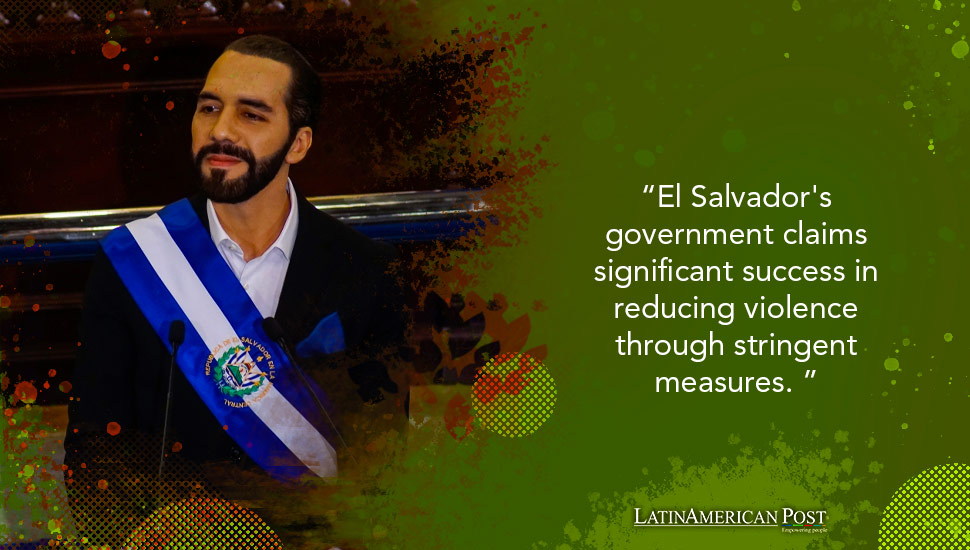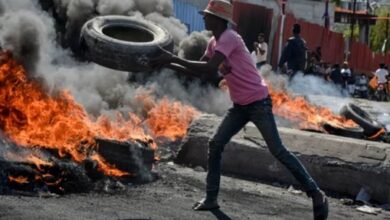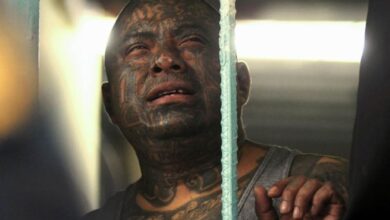Balancing Violence Reduction and Human Rights in El Salvador

El Salvador’s government claims significant success in reducing violence through stringent measures. However, these actions have raised serious human rights concerns, particularly regarding the detention of minors and the erosion of constitutional guarantees.
Between March 2022 and December 2023, a staggering 3,319 minors were detained in El Salvador under the regime of exception, as per a Human Rights Watch (HRW) report citing official data. The report, released on Tuesday, underscores that 841 of these minors were still detained as of January, with 262 in provisional detention and 579 serving sentences. These figures were shared by the National Council for Early Childhood, Childhood, and Adolescence (Conapina) with U.S. authorities.
The HRW report reveals a disturbing fact-many of the detained minors had no apparent ties to gangs. “The minors were held in deplorable conditions, including overcrowding, lack of access to adequate food and medical care, and limited family contact,” the report states, based on dozens of interviews and a review of judicial files, medical records, and educational and criminal histories.
The Salvadoran government has yet to respond to HRW’s report or CNN’s request for comments. Previously, President Nayib Bukele has dismissed criticism of the regime of exception, asserting that it has transformed El Salvador from one of the most violent countries in the world to one of the safest in the Americas. In 2015, the homicide rate was 106.3 per 100,000 inhabitants; by 2023, it had dropped to 2.4. Bukele projects it will further decrease to 1.8 in 2024.
The Bukele administration attributes this decline in violence to its Territorial Control Plan and the regime of exception, which suspends constitutional rights and guarantees. This state of emergency, in place since late March 2022 in response to a surge of violence that saw 62 homicides in a single day, has led to the detention of over 80,000 people.
Human Rights Violations Amid Crime Reduction
The HRW report, titled “Your Child Does Not Exist Here: Human Rights Violations of Children and Adolescents During the State of Exception in El Salvador,” is based on interviews with over 90 people in El Salvador between June 2023 and July 2024 and visits to various communities from September to December 2023. It notes that at least 1,000 minors have been sentenced to prison terms ranging from two to 12 years for broadly defined charges like “illicit associations,” often based on unsubstantiated police testimonies.
Security forces have subjected many children and adolescents to severe human rights violations during arrest, detention, and even after their release. HRW recommends that the government establish a mechanism to review the cases of minors detained during the state of exception and release those captured without evidence. The report also calls for an end to torture, arbitrary detentions, and inhumane detention conditions.
The regime of exception includes extending pre-trial detention from 72 hours to 15 days, easing phone wiretapping, and restricting freedom of assembly and the right to legal defense in court. These measures were introduced in response to a violent outbreak by the Mara Salvatrucha (MS-13) gang in March 2022, which left 87 people dead over a weekend. The government has also harshened sentences for gang-related crimes, including a minimum of 30 years for membership, leading to a massive crackdown on past and current gang members and collaborators.
Regional Influence and Imitation
El Salvador’s dramatic reduction in homicides—nearly 70% in 2023—has been credited to Bukele’s prolonged state of emergency and harsh measures against crime gangs. In 2022, the country reported 495 homicides, a significant drop from the 6,600 homicides recorded eight years earlier. Based on current trends, 2023 could end with around 200 violent deaths, a murder rate comparable to European countries.
Bukele’s approach has gained broad support among Salvadorans tired of gang violence, extortion, and drug dealing. Around 80% of recent poll respondents support the state of exception. The popularity of these measures has echoed throughout Latin America, with politicians in Colombia, Chile, and Argentina using Bukele’s success to criticize their governments’ relative inaction on security. Presidential candidates in Guatemala and the Dominican Republic have promised to follow in Bukele’s footsteps if elected.
In Honduras, public criticism of perceived increases in extortion activities led President Xiomara Castro to impose a similar state of exception in December 2022. Initially limited to 160 communities in Tegucigalpa and San Pedro Sula, it has since expanded to 50 municipalities. However, Honduran authorities have only detained around 4,000 suspected criminals, and many detainees have been released for lack of evidence.
The Complexity of Replicating Bukele’s Methods
Despite the appeal of Bukele’s methods, practical challenges hinder other countries from implementing similar measures or achieving the same results. The success of Bukele’s crackdown is intertwined with El Salvador’s unique criminal landscape, where three significant gangs—Mara Salvatrucha and two factions of Barrio 18—dominate urban and suburban areas. This concentrated and well-defined criminal environment has made it easier for authorities to trace and target gang activities.
El Salvador’s ability to imprison tens of thousands of gang members and maintain control in jails is another crucial factor. Since the collapse of the 2012–2014 gang truce and the subsequent war between gangs and security forces, Salvadoran authorities have built a comprehensive database of gang members, estimated at over 75,000 in a country of 6.5 million people. The government also boasts over 25,000 police officers and 20,000 military personnel, ensuring a robust security presence.
Salvadoran authorities have imposed strict control measures in prisons, including isolating inmates in security jails and reducing family visits and leisure time. Brutal repression tactics by correctional officers, such as teargassing cells to maintain order, have also been reported. Despite unprecedented overcrowding—over 300% at the end of 2022 before the inauguration of a new jail—order has been maintained.
The Democratic Risks and Human Rights Concerns
While Bukele’s tactics have achieved short-term security gains, they pose significant risks to democracy and human rights. Human rights organizations and media have reported numerous unjustified arrests, often based on unverified complaints or the “suspicious” appearance of individuals. The “detain first, investigate after” approach and a general environment of impunity have created fertile ground for abuses.
Bukele’s concentration of power has facilitated the perpetual extension of the state of exception and ensured that most detainees remain in custody. With a supermajority in the Legislative Assembly, Bukele’s party, Nuevas Ideas, has transformed it into a rubberstamp parliament, approving executive initiatives without debate. The dismissal and replacement of Supreme Court judges, the Attorney General, and other officials with Bukele loyalists have further entrenched executive control.
The state of exception has also laid the groundwork for a potential police state. Legal reforms accompanying the measure have erased transparency in public procurement, curtailed constitutional guarantees for fair trials, and sanctioned media that share messages causing “anxiety” among the population.
The long-term sustainability of El Salvador’s security achievements is uncertain. Prison overcrowding could trigger mutinies and violence, and gangs might exploit the resentment of unjustly detained individuals to recruit new members. Many gang members have already fled to neighboring countries, and the underlying conditions that gave rise to gang violence—marginalization, lack of economic opportunities, and a culture of violence—remain unchanged.
The Need for a Balanced Approach
El Salvador’s experience under President Bukele’s regime of exception highlights the delicate balance between reducing violence and respecting human rights. While the dramatic drop in homicides and the dismantling of gang operations have been lauded, the severe human rights violations and erosion of democratic norms raise serious concerns.
Other Latin American countries considering similar measures must carefully weigh the potential benefits against the risks to human rights and democratic institutions. The popularity of Bukele’s methods should not overshadow the importance of maintaining checks and balances, ensuring fair legal processes, and addressing the root causes of violence.
Also read: El Salvador’s Selective Justice Exposes Deep Legal Flaws
Ultimately, a sustainable solution to crime and violence in Latin America requires a multifaceted approach that combines effective law enforcement with social and economic reforms. The region can achieve lasting peace and security by addressing the underlying issues driving criminal activity without sacrificing human rights and democratic principles.





